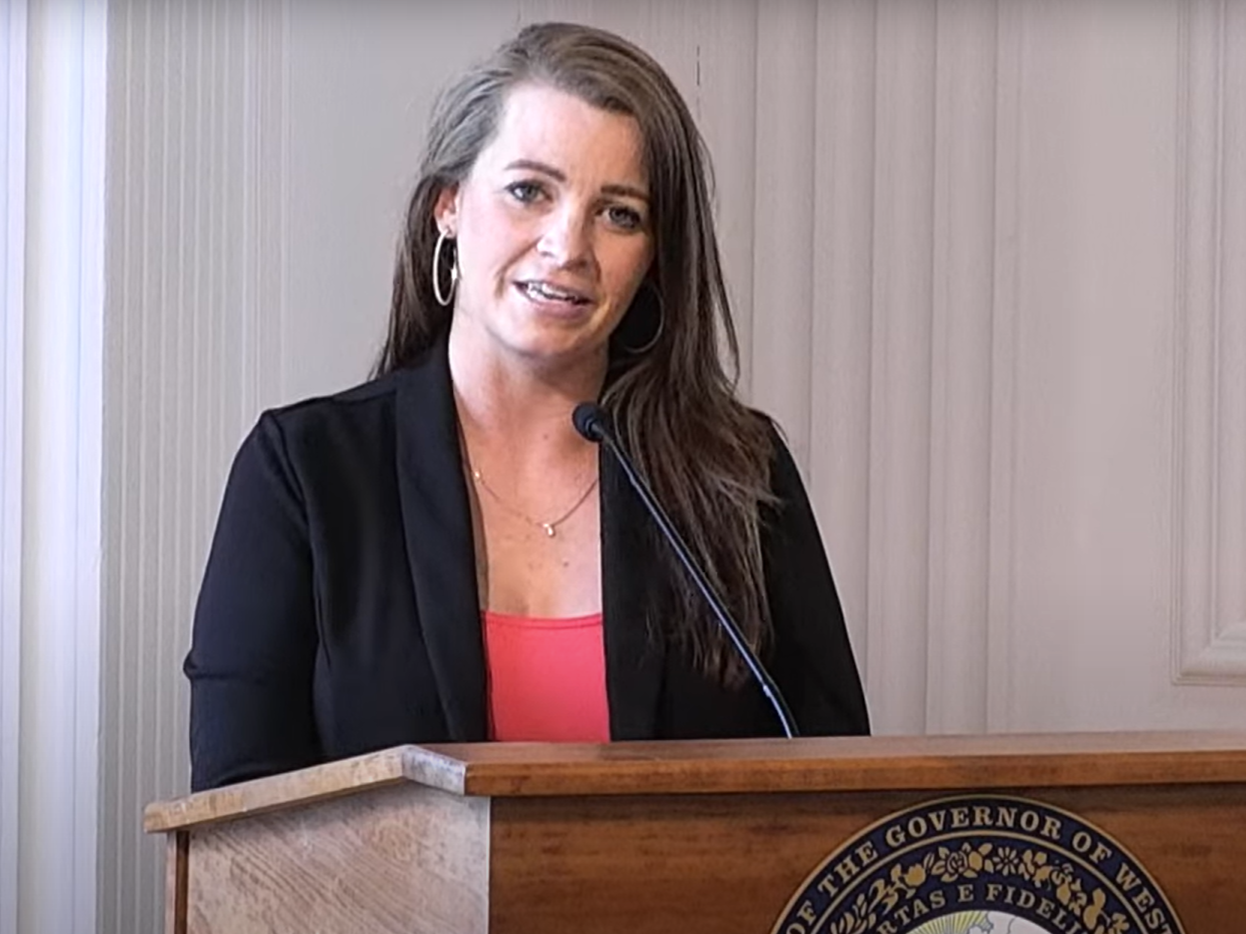People of all backgrounds experience sexual violence, but sexual harassment and assault against women veterans is especially pervasive.
According to the United States Department of Veteran Affairs, one in three women veterans report experiencing sexual violence during their military service.
To provide resources that better address military sexual trauma, the West Virginia Department of Veterans Assistance has launched a new Women Veterans Program.
The program will be led by Jessica Lynch, a West Virginia resident who was taken as a prisoner of war in Iraq in 2003.
Lynch joined Gov. Jim Justice’s virtual press briefing Wednesday to share news of the program’s launch, and her hopes for what it can accomplish.
“It’s going to be a very exciting job that I’m willing to take on, and I hope that we are able to reach more women veterans across the state,” she said.
Edward Diaz, cabinet secretary for the Department of Veterans Assistance, said addressing gaps in resources for survivors of military sexual abuse was a top priority entering his current position.
Women veterans are “just so much more likely to have experienced sexual harassment, sexual assault and, of course, unfortunately, rape,” he said. “It needs to be addressed not only on a national level, but also within our home state here.”
Diaz said that social stigma surrounding sexual violence often discourages survivors from coming forward and seeking the resources they need.
“A lot of the women who have gone through this — and even men who have gone through this — they aren’t as comfortable talking to male veterans,” he said. “They’re reluctant to come into our offices. They’re reluctant to come in for assistance.”
Plans for program outreach remain under development. But the Department of Veterans Assistance plans on hosting community events, and directly contacting local veteran communities around the state.
The goal is to spread awareness about the resources available to survivors, and help them to access support.
“There are initiatives across every state and territory in the U.S. trying to address this problem — trying to make sure that women are heard,” Diaz said. “From a state level, I wanted to bring this forward.”
Diaz said that Lynch has remained an important and passionate supporter of women veterans in West Virginia since her military service.
When looking for someone to lead the program, this made Lynch an obvious choice.
“Over the past several weeks getting to know her on a personal level, I’m in awe. I’m truly amazed of her character … being able to empower women veterans across the state,” he said.
Justice applauded the Department of Veterans Assistance for their new program, and Lynch for her work leading the project.
“You’re stepping up for West Virginia again, and you’re stepping up for our women’s veterans and everything that need help, need help, need ambassadors,” he told Lynch.
Health care providers have also made recent steps toward advancing resources available to women veterans. Earlier this month, the Berkeley VA Medical Center opened a new clinical space to specifically address the needs of women veterans.
Justice said it is important to continue advancing resources for women veterans.
“Let’s try to do any and everything we can to salute and help our women veterans,” he said.
